- HOME
- INTRO TO THE FORUM
- BADLY WRITTEN, BADLY SPOKEN
- GETTING
TO KNOW ENGLISH - PREPARING FOR ENGLISH PROFICIENCY TESTS
- GOING DEEPER INTO ENGLISH
- YOU ASKED ME THIS QUESTION
- EDUCATION AND TEACHING FORUM
- ADVICE AND DISSENT
- MY MEDIA ENGLISH WATCH
- STUDENTS' SOUNDING BOARD
- LANGUAGE HUMOR AT ITS FINEST
- THE LOUNGE
- NOTABLE WORKS BY OUR VERY OWN
- ESSAYS BY JOSE CARILLO
- No Earthly Reason Why The Clergy Should Be Bad In English Grammar
- Here’s Hoping For Better English In This Year’s Graduation Rites
- Looking Back to Easter Sunday’s Earthly and Celestial Foundations
- Our Need For Thinking National Leaders With The Gift Of Language
- The Heavy Price of Misplacing One’s Trust and Confidence
- The Three Basic Word-Positioning Principles For Emphasizing Ideas
- ABOUT JOSE CARILLO
- READINGS ABOUT LANGUAGE
- TIME OUT FROM ENGLISH GRAMMAR
- NEWS AND COMMENTARY
- BOOKSHOP
- ARCHIVES
GOING DEEPER INTO ENGLISH
For those who wish to do a deeper study of the English language as well as enjoy some of its classic studies and exemplary contemporary applications, Jose Carillo’s English Forum is presenting a selection of major outstanding works that are linkable on the web in their complete form, from contemporary English-language journalism to H.W. Fowler’s The King’s English, H. L. Mencken’s The American Language, and all the way back to the complete plays of William Shakespeare.
This section will also periodically feature articles and primers on practical applications of English such as school paper preparation and writing, creative writing, business writing, public speaking, and various other forms of exposition.
Its overall objective is to help members of Jose Carillo’s English forum acquire a much stronger, well-rounded grasp and appreciation of the English language.Joe Carillo
The Shakespeare authorship debate bubbles to the surface again
Does it really matter if it wasn’t really William Shakespeare but another playwright—perhaps Christopher Marlowe, Edward de Vere (the Earl of Oxford), or Francis Bacon—who authored Hamlet, Macbeth, Romeo and Juliet, and some 35 other plays as well as 154 sonnets from the Elizabethan age? The authorship of these lasting treasures of the English language has remained a highly contentious issue for the past 300 years, drawing into the fray even such notables as the psychoanalysis pioneer Sigmund Freud and the novelists Henry James and Mark Twain. Twain in particular, describing Shakespeare as “that grossly commercial wool-stapler,” refused to believe that a nonlawyer like Shakespeare could have written so well about the law and law courts. “A man can’t handle glibly and easily and comfortably and successfully the argot of a trade at which he has not personally served,” Twain argued. Indeed, so heated had the Shakespeare authorship question become that the subject became taboo for academics, even as it became a recurring incendiary subject of treatises by both well-meaning literary theorists and cranks alike.
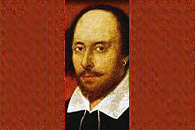
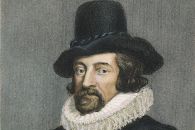
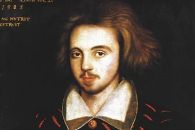
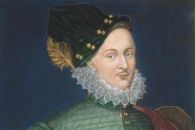
Who among them is the real author of Shakespeare’s works? (From top clockwise)
William Shakespeare, Francis Bacon, Edward de Vere, or Christopher Marlowe.
Recently, though, James Shapiro, a Shakespeare scholar and English professor from Columbia University, broke the taboo and decided to explore the authorship question using a conciliatory and noncombative approach. In his new book, Contested Will, Shapiro argues that the different Shakespeare authorship camps actually have more in common than they would want to admit. He looks at their interminable authorship debates as a cautionary tale against the desire of some modern readers to read the literature of a pre-autobiographical age the way more recent writing is read today. “Anybody who’s been an academic and sat in on departmental meetings has discovered that very smart people can say very dumb things,” he says. “Writers who have been very influential in my intellectual life…in this case wrote and said some very dumb things. That has to be explored.”
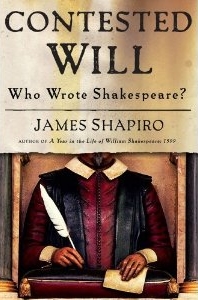
In the March 28, 2010 issue of The Chronicle of Higher Education, senior reporter Jennifer Howard writes about Contested Will and Shapiro’s purpose and approach to the subject as well as his post-publication thoughts about the book. Howard also reports about the early mainstream reviews of the book and the reactions of the anti-Stratfordian scholars to its publication. (March 30, 2010)






